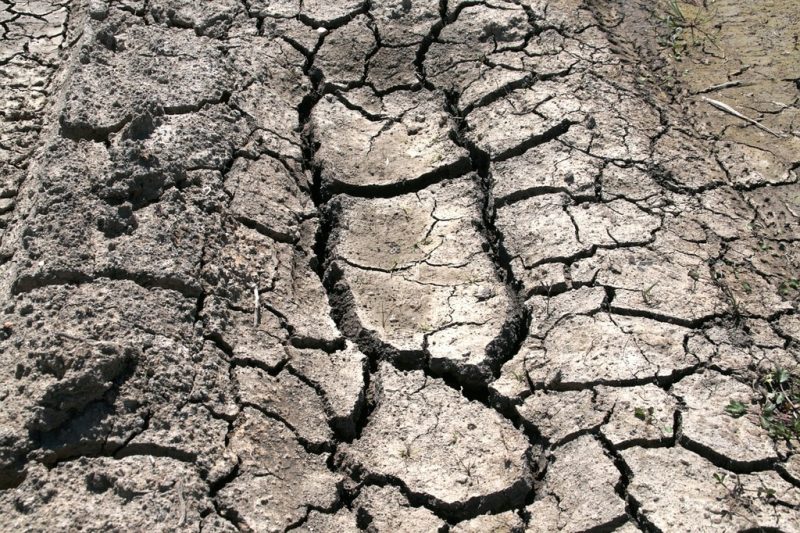The city of Manaus, sitting at the confluence of the black waters of the Rio Negro and the muddy waters of the upper Rio Solimões (or Amazon River), is usually frequented by boats which transport tourists and deliver supplies to the city’s factories, says the Guardian. But today boats struggle to reach Manaus. The current dry season has seen river levels fall to record-breaking lows; the Port of Manaus website reports that the Rio Negro fell to 12.70m on October 26th, a new minimum in the 121-year record. As the rivers dry, it becomes harder for medicine and other resources to reach communities via boat – and this is just one of many negative repercussions.
The Brazilian state of Amazonas is currently seeing the “worst drought in history,” Wilson Lima, governor of the Brazilian state of Amazonas, said on October 20th. A.P. News reports that 59 municipalities in the state have declared a state of emergency. In addition to the difficulties posed to transportation, the Guardian explains, the dry conditions have exacerbated wildfires, leading Manaus to have the second worst air quality globally. The B.B.C. reports that remote villages have become isolated, and, likely due to the heatwave and drought, there have been high levels of wildlife mortality.
Some people are digging wells by hand to access water. Luciana Valentin, who lives in Santa Helena do Ingles, told Reuters, “Our children are getting diarrhea, vomiting, and often having fever” as a result of the impacts on water quality. Ayan Santos Fleischmann, a hydrologist at the Mamirauá Institute in Tefé, Brazil, says the drought is “a humanitarian, environmental, and health crisis.”
Indigenous groups are particularly hard-hit by the drought’s impacts. “As the rivers dry up, there are no fish,” explained Francisco Hernández, the leader of the Federation of the Ticuna and Yaguas Communities of the Lower Amazon (FECOTYBA). “For the Ticuna people, the fish are our source of life.” Hernández called for immediate support, telling the Rainforest Foundation that the river is “drying up in the worst possible way … all that’s left for our Indigenous brothers to drink is dirty water.”
In addition to its severe impacts on Brazil, the drought has global implications. The Amazon Basin ecosystem is essential for regulating the global climate due to its carbon-storing properties. With the drought threatening this, including through exacerbating wildfires, there could be severe consequences for global carbon concentrations. There is even speculation that the rainforest may be approaching a tipping point, beyond which there will be irreversible changes in the ecosystem. This could be devastating for human and non-human life, from local to global scales.
The Brazilian government attributes the drought to the current El Niño phase and climate change, says the B.B.C. Together with a warmer-than-usual equatorial Atlantic Ocean, scientists say, the warming of the eastern equatorial Pacific under El Niño prevents cloud formation over the Amazon and leads to drought. Deforestation and wildfire also exacerbate drought, as trees which would otherwise release water vapour are removed, says Ane Alencar, Director of Science at the Institute for Amazonian Environmental Research.
Amazonas state has launched a $20 million response plan, reports A.P. news. The B.B.C. reports that the government established a humanitarian taskforce, but that the situation has since worsened, with many needing more support. The drought is yet another example of the cruel irony of climate change: those least responsible for carbon emissions bear the brunt of the resulting meteorological devastation.
It is sobering to consider that events like this drought are becoming both increasingly frequent and increasingly severe. Indigenous communities and low-income countries consistently bear the most severe impacts of climate change. It is essential that high-income countries, who have almost always contributed significantly to carbon concentrations whilst amassing this wealth, mitigate their emissions dramatically. It is our responsibility to support the most vulnerable across the globe and within our own populations.
- Drought In The Amazon Breaks 121-Year Record - March 3, 2024
- Amidst Growing War Fatigue, Politics Crucial For Ukraine’s Future - February 2, 2024
- U.N. And Red Cross Call For International Restrictions On Autonomous Weapons - October 26, 2023


